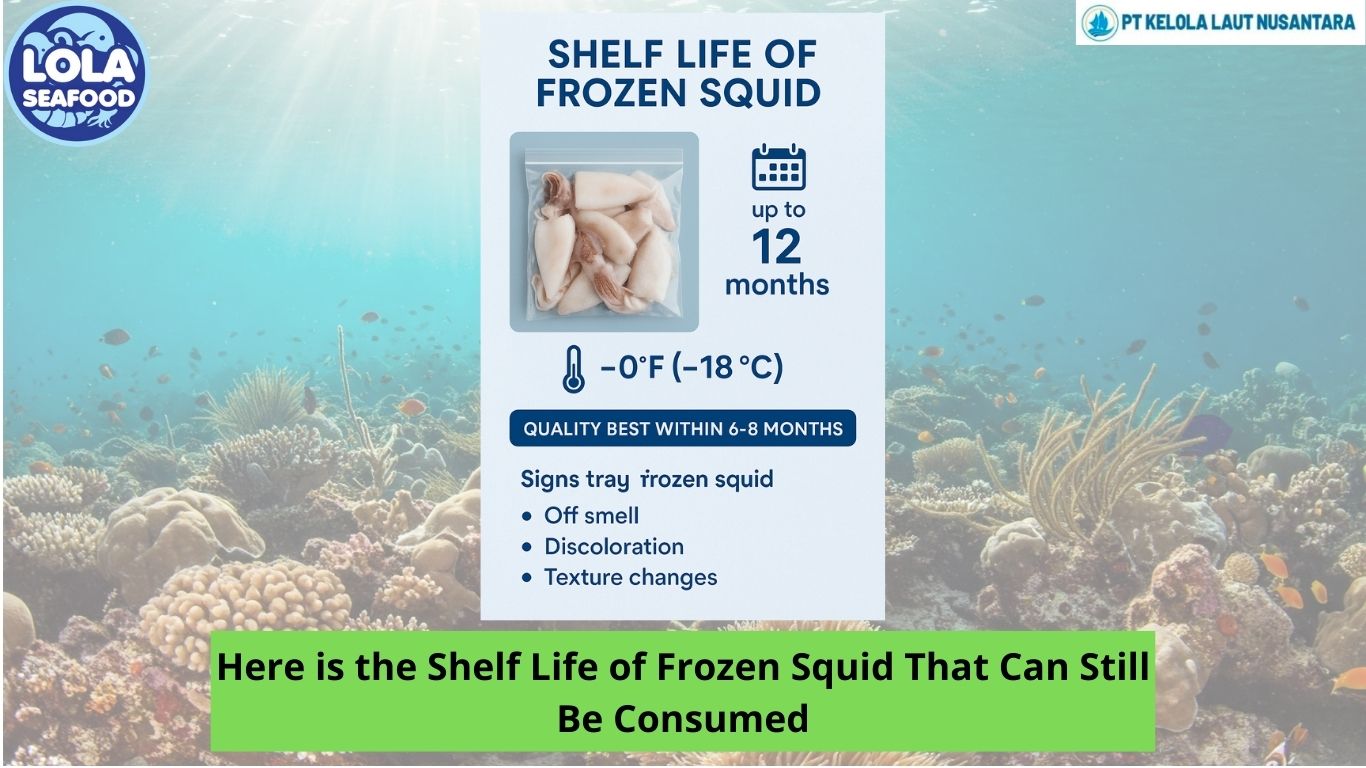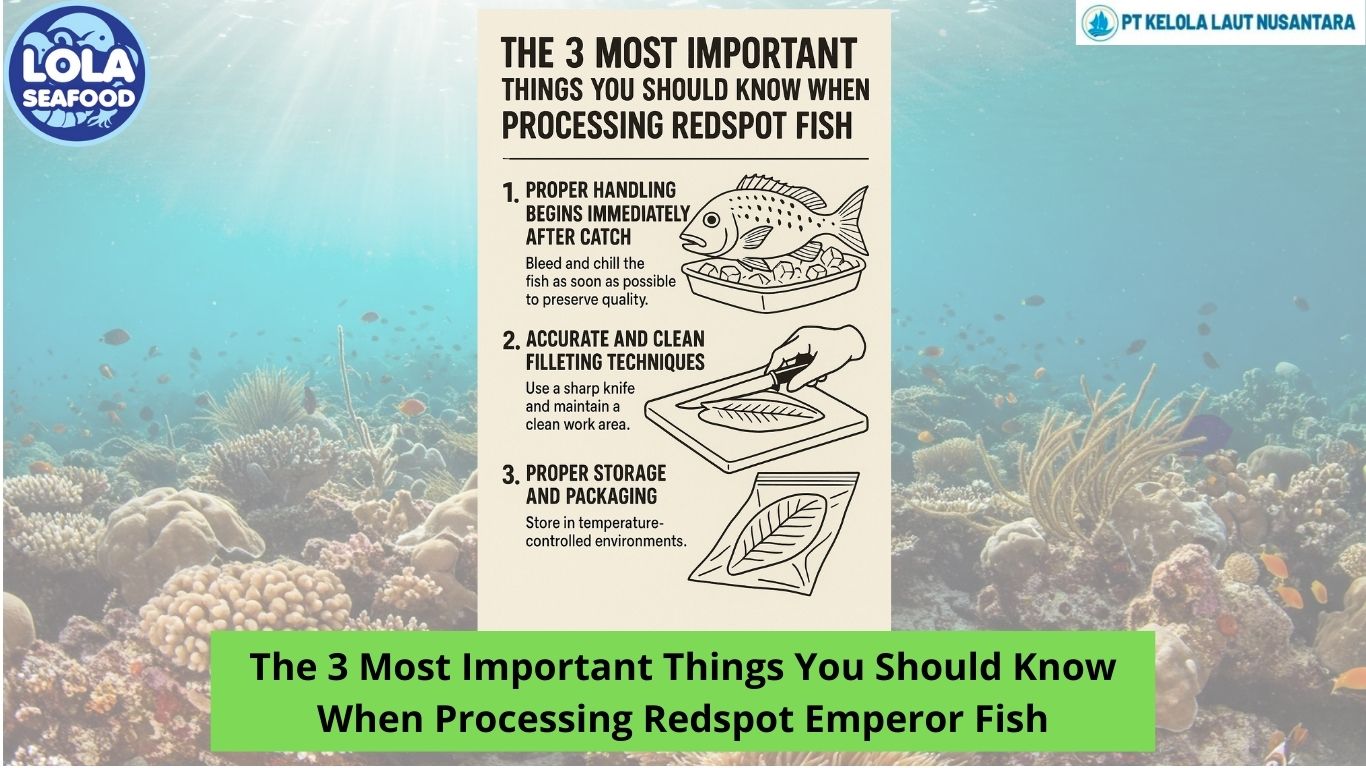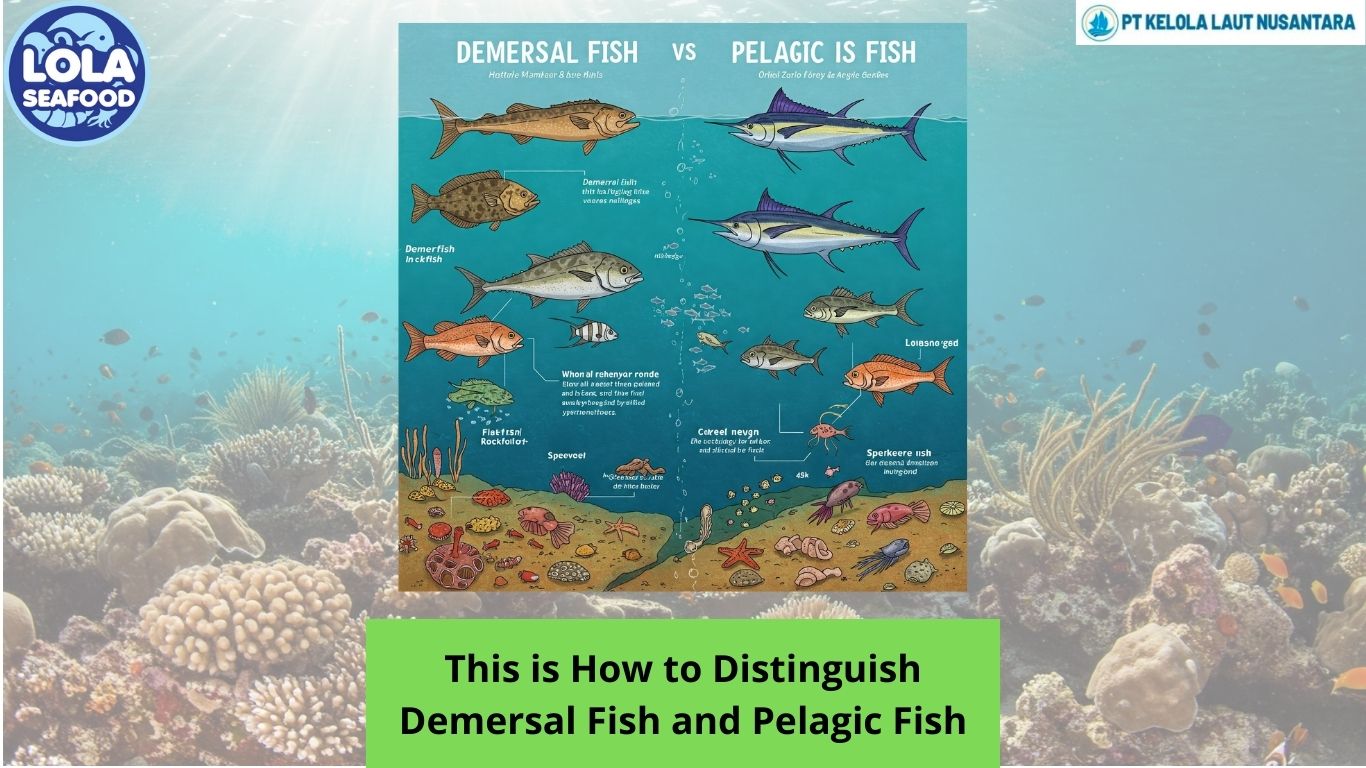Here Are 5 Health Benefits When You Eating Squid
By. Nevanda - 06 Jun 2023
kelolalaut.com - Squid is a popular seafood choice in many cuisines around the world. It is appreciated for its tender texture, mild flavor, and versatility in cooking.
Squid offers a range of nutritional benefits, making it a healthy addition to your diet. While the exact nutritional content may vary slightly depending on the species and preparation method, here is a general overview of squid's nutritional profile.
Squid is a low-calorie food, making it an excellent choice for those watching their calorie intake. It is also notably low in fat, particularly saturated fat, which makes it a healthier alternative to many other animal protein sources. It also contains heart-healthy omega-3 fatty acids, which are beneficial for brain function, cardiovascular health, and reducing inflammation in the body.
Read also: This Is Why Snapper Is A Popular Seafood
In terms of vitamins and minerals, squid provides several essential nutrients. It is a rich source of vitamin B12, vitamin B6 and minerals like selenium, copper, and zinc. Those vitamin and minerals play important roles in supporting immune function, antioxidant defense, and enzyme activity.
Here are some squid health benefits:
1. Omega-3 to your healthy heart
Squid contains a decent amount of beneficial omega-3 fatty acids. Omega-3 fatty acids, with their anti-inflammatory properties, play many important roles in the human body, especially in reducing the risks of cardiovascular and other chronic diseases.
2. Good protein for muscle building
Squid provides 15.6 grams of protein per 100 g serving. Also, squid is a complete protein which means that it contains adequate amounts of all nine essential amino acids required for building the tissues and muscles of our body.
Read also: 5 Sea Creatures That Can Be Used As Gelatin Sources
3. Helps prevent anemia
By eating squid, we can maintain blood flow thanks to the copper-containing squid. In fact, squid contains up to 90% of the copper that blood needs to function properly.
4. Maintain bone and teeth health
Squid contains an abundant amount of phosphorus. Phosphorus itself is not directly involved in bone and tooth health, but it does promote the body's absorption of calcium - a mineral important in building strong teeth and bones.
5. Stabilizing blood sugar
Squid is one of the few shellfish that is actually low in carbohydrates. In fact, in 30 grams of boneless squid, you'll only get 0.87 grams of carbohydrates. But remember, you cannot fried them in order to get the maximum benefits of low carbs in squid.
As with any seafood, it is also essential to consider the source and freshness of the squid to ensure its quality and safety. Overall, when enjoyed as part of a balanced diet, squid can provide a nutritious boost to your meals while offering a delicious seafood experience.
Read also: How To Make Salted Squid In 5 Easy Steps

.jpg)
.jpg)
.jpg)




